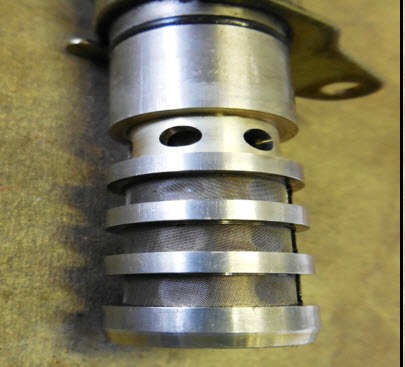Variable Camshaft Timing
2017 Update Class
Some of the Images are from your Smog License Update Class manual by AGT Training
I know coming from work and setting in a class lecture can be hard but I appreciate your effort.
This is the lecture from class repeated just encase you came in late or dose off LOL.
Variable Camshaft Timing:
What is the purpose of variable camshaft timing or should I say variable valve timing "VVT."
variable camshaft timing / variable valve timing
variable valve timing (VVT) changes the timing or valve lift, in most cases its used for improved engine performance which is very popular on Honda's.
Variable Vavle timing also improves emissions as we wil discuss later.
They are controlled with mechanical devices to electro-hydraulic systems.
With the strict emissions regulations variable valve timing as become very popular with manufacturers
Variable Valve Timing
- Increased volumetric efficiency
- Replaces the EGR system on some models by increasing valve overlap
- Increase timing and Power
The variable valve timing achieves the desired cam / crank relationship, and if it's not functioning correctly, there will be an increase in emissions.
Manufacturer's use the concept of increasing valve overlap, holding the exhaust valve open longer will help lower Nox.
Remember the VCT or V V T replaces the EGR on some vehicles, and if it's not working NOx emissions could increase.
OIL LEVEL IS IMPORTANT
The oil change is very important when we talk about variable camshaft timing.
Oil pressure is used to activate the timing actuator using a spool valve.

IMAGINE BY AGT SMOG UPDATE TRAINING MANUAL
If the oil passage to the spool valve is restricted the vehicle will have a performance problem and or high emissions
i have seen cases when the vehicle
would have a misfire above idle speeds cause by a lack of oil to the actual
This is why oil level is important along with oil pressure, oil viscosity, and oil temperature.
The PCM "Powertrain Control Module, " uses the CMP and CKP signals for proper camshaft timing.
If timing isn't achieved the PCM "Power Train Control Module" will set a code and the check engine light for an incorrect position.
One of the most common problems I have seen was a dirty or plugged actuator screen.
This is usually caused by low oil or lack of maintenance or dirty oil.
It's important to remember oil pressure changes the relationship of the camshaft gear to the camshaft.
When this relationship is out of tolerance, you will get a camshaft error code.
If this occurs check the oil condition for lack of maintenance, plugged or dirty actuator screen restricting oil flow.
Timing chain or belt problem causing erratic readings will cause cam / crank relationship problems
Also, don't forget to test the actuator it could just be defective.
I'll appreciate you click the like button if this information would be usual to you.
CLICK HERE FOR MORE INFORMATION
CLASS SCHEDULES
Emission Control 1:
B.A.R. Smog Check
Inspector Level 1
(Inspector "Smog" License):
Engine Fundamentals
8am - 12:15 pm
Summer Class
7/5/2022 -8/5/2022
Class # 799065
Emission Control 2:
B.A.R. Smog Check
Inspector Level 2
(Inspector "Smog" License):
Rules and Regulations
8am - 12:15 pm
Summer Classes
7/5/2022 - 8/5/2022
Class # 799067
Engine Performance 1:
8am - 12: 15 pm
Date: TBD
Class # 799069
Engine Performance 2:
B.A.R. Specified Diagnostic
and Repair Training
(Repair "Smog" License)
Time: TBD
Date: TBD
Class # 799071
Emission Control 1
(Inspector "Smog" License):
5:00pm - 8:45 pm
Date: TBD
Class # 799065
Emission Control 2:
(Inspector "Smog" License):
5:00pm - 8:45 pm
Date: TBD
Class # 799065
Exhaust Emissions (Update Class):
5:30 pm - 8:45 pm
Tuesday nights:
Dates: coming soon
Class # 796070